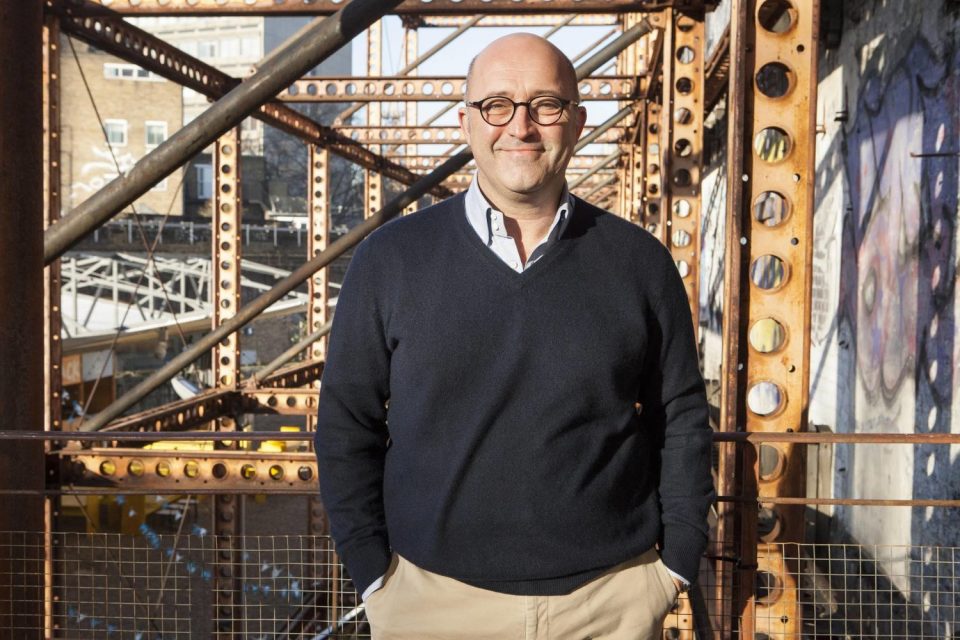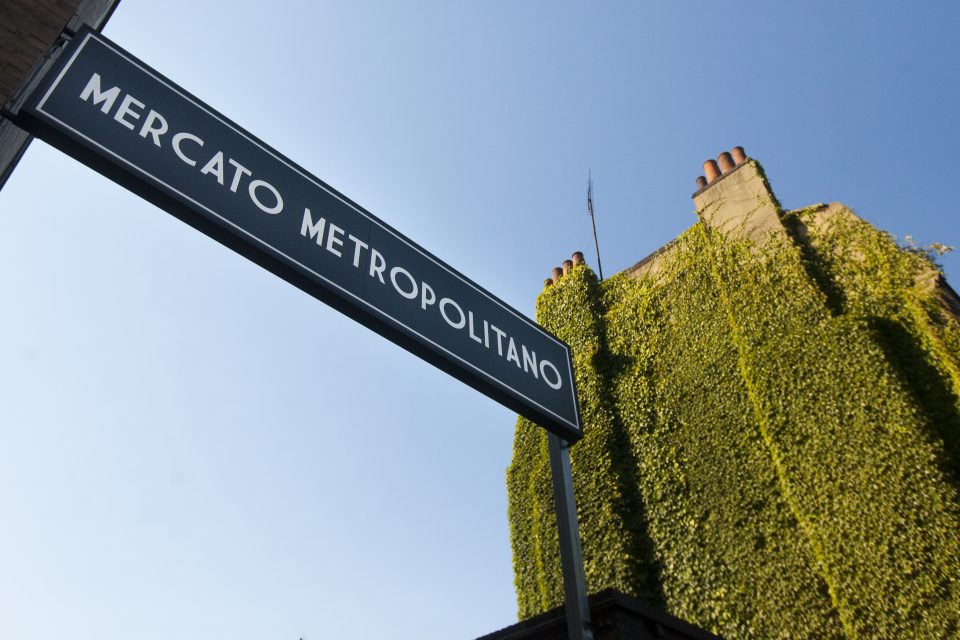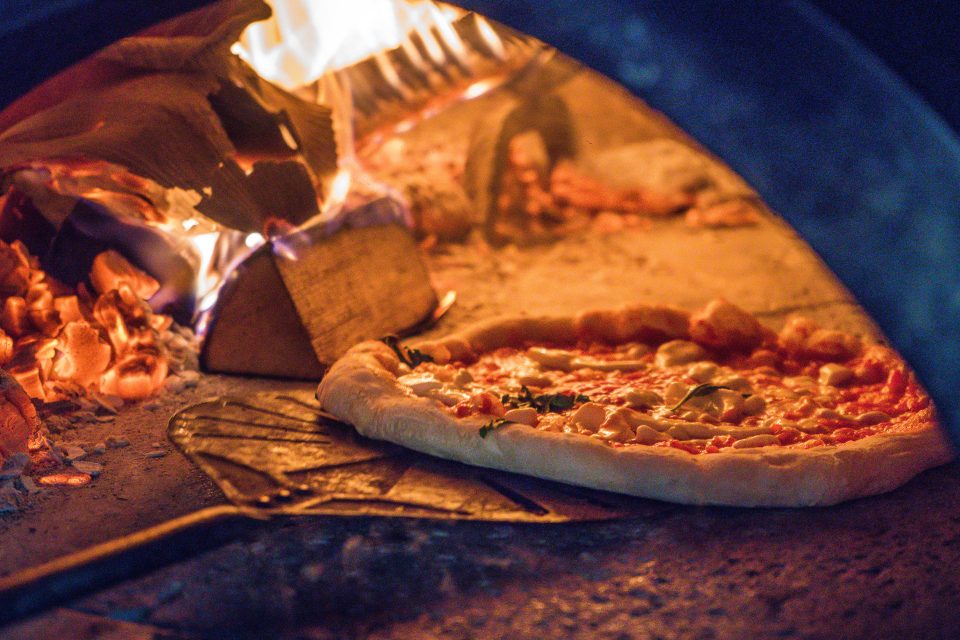Mercato Metropolitano’s founder is a man on a mission
The words Elephant & Castle and trendy food market don’t normally go together. It’s an area that’s unfortunately more associated with crime and poverty than gourmet dining.
But since 2016, a patch of unassuming land around the corner from the Ministry of Sound has played home to Mercato Metropolitano. This upscale hotspot has around 50 vendors selling food from all corners of the globe – in 2018, three million people visited it, generating around £15m in sales.
Mercato Metropolitano now plans to open several more sites in the capital, including in Mayfair and Ilford. And the business has been asked to open locations in Europe and the US, too.
From Milan to London
However, the story of the market doesn’t begin in London – the original concept was tested at the 2015 World Expo in Milan. Andrea Rasca, a serial Italian business entrepreneur and the founder of Mercato Metropolitano, transformed a disused railway station there into a thriving food hall.
“We had 2.5m visitors in four and a half months, without spending one pound in advertising,” Rasca recalls.
“That Mercato was the full synthesis of what I’d been through in my career, my studies, everything. We created this space, which represented me and how I want to live my life – a table, with people around, cooking together and eating together.”

Sadly, Rasca was forced to close it due to a decision by the site’s owners.
“I love Italy, but we do not tend to have a long-term view on things,” he laments. “They said ‘you have to dismantle and we have to decide what to do with that space’. That was 2015, now it’s 2019, and it’s still empty.”
Not to be deterred, Rasca turned his attention towards London. Friends in the city showed him several possible locations, but he was unimpressed until he was brought to the spot in Elephant & Castle.
Before it became Mercato Metropolitano, the site was a paper factory that had been disused for decades. It belonged to the housing association Peabody Trust, which had struggled to develop the site – until Rasca came along.
“When I came here, there were dogs and guards. It was a disaster – an ex-factory that was abandoned,” he recalls.
“But if you look at a map, it’s at the heart of London. I saw the potential for an amazing place. I talked to Peabody, which didn’t know what to do with it. We agreed on a very low, accessible rent, because it wanted to get rid of paying business rates.”
Three months after the agreement, the market opened.
“The beginning is always difficult, because we do not advertise – it’s all word of mouth. But then we grew: in 2017 we did around £9m of sales, in 2018, we closed at approximately £15.2m, this year we are targeting £23m,” Rasca says. “It was scary to begin with. When you’re an entrepreneur, you need to be scared. If you’re not scared, it means that there’s something wrong.”
Cooking up success
Mercato Metropolitano is also a social enterprise, running events and workshops for the local community like film screenings, cooking classes, and yoga sessions.
What also sets it apart from its competition is how it deals with vendors. Rather than simply charging a flat rent for space, the market is more like an incubator programme, working with young food and drink startups and taking a percentage of their sales, so the vendors only pay if they are doing well.

However, this arrangement means that the startups must give up some independence. Vendors have to provide the Mercato with a list of ingredients and where they’re sourced from, and be willing to open their fridge at a moment’s notice. They also have to work with the executive chef team who inspect how they operate.
“Everything has to be controlled by us, so the food is mostly organic and mostly local. It’s not only about quality control, I want to know and understand who is the supplier,” explains Rasca. “My real concern is the visitor, and to give them the best possible experience. And because we have such a big space, I can charge less rent and negotiate with suppliers. Everybody’s happy, and no one wants to leave.”
Rasca’s concern over where vendors’ ingredients come from may seem a touch extreme. He is very passionate – bordering on angry – about food issues in the world. He argues that the big retailers and manufacturers have degraded food quality, and that society stopped eating well after the industrialisation of farming.
“People started thinking about the money in their pockets and not the people they were feeding. They started to maximise the profit on wheat, for instance, by creating a wheat flour that was not nutritious, but could sit on a shelf for two years. That sounds fantastic, but who cares – I want food to go rotten, otherwise there’s something wrong with it.
“We’ve been educating people that food has to be cheap. This is the biggest stupidity in the world. Food has to be good, healthy and nutritious, and then we have to make it accessible to everybody. Cheap is not the first thing we have to think about.”

It is worth noting that, thanks to developments in food production that Rasca dismisses, globally the number of people classed as undernourished has fallen dramatically over the years, from over one billion in 1991 to 820m in 2017, according to data from the UN Food and Agriculture Organisation.
But Rasca is adamant. He talks about the rise in diabetes-related illnesses in the UK, about childhood obesity, and scoffs at the idea that banning junk food adverts – as Transport for London did this year – is the answer.
“If you still sell Coca-Cola in every corner of this city, and then ask me how you combat child obesity, I’d like to take your head and smash it against a wall,” he says jokingly (I hope). “It’s not by banning adverts on buses.”
Rasca argues that the answer instead is to create places where industrial food is not allowed, like in his market.
“This is a safe haven from the bombardment of advertising. I opened this place because I wanted to give an answer to the food issues facing the big cities.”
Certainly, Mercato Metropolitano takes these issues seriously. The website hosts a manifesto about food rights, sustainability, and ensuring access to nutritious and adequate food for everyone. I tell Rasca that he sounds more like he’s on a mission to save the world than just run a business, and he agrees.
“Mercato was born to create a positive, alternative solution and way of living. It’s not just about food, it’s about how we live. This is a mission, not just a business.”
Image credits: Mercato Metropolitano